Blast from the past
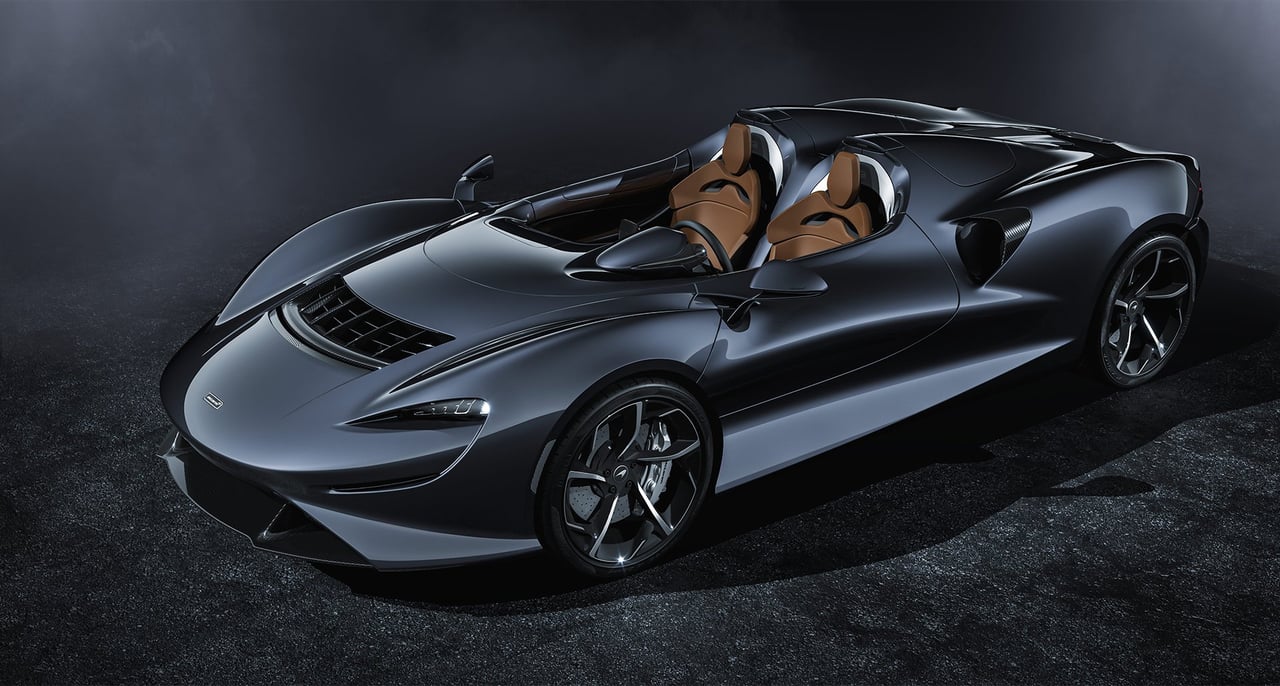
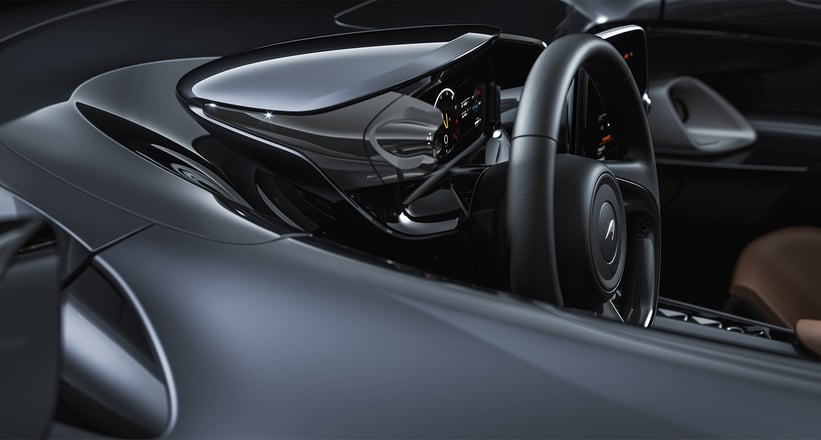
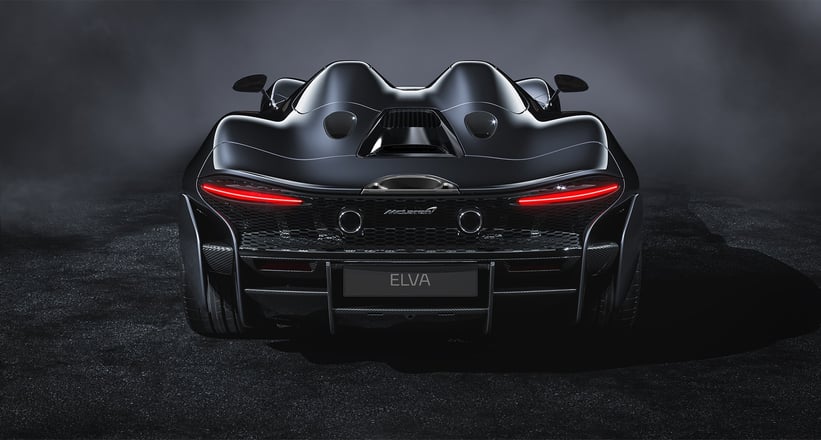
Christened the Elva after the Group 7 open prototypes Bruce McLaren sold to many privateer racers in the 1960s, McLaren’s spectacular new ‘Ultimate Series’ roadster – which foregoes a windscreen, roof and windows in its standard guise – is the lightest car to leave Woking since the F1 thanks to the extensive use of the carbon-fibre both above and below the surface. Coupled with an 815HP version of the marque’s twin-turbocharged 4.0-litre V8 engine, the result is a car that accelerates from 0–124mph in just 6.7sec, considerably quicker than the hardcore, track-oriented Senna.
Form follows function
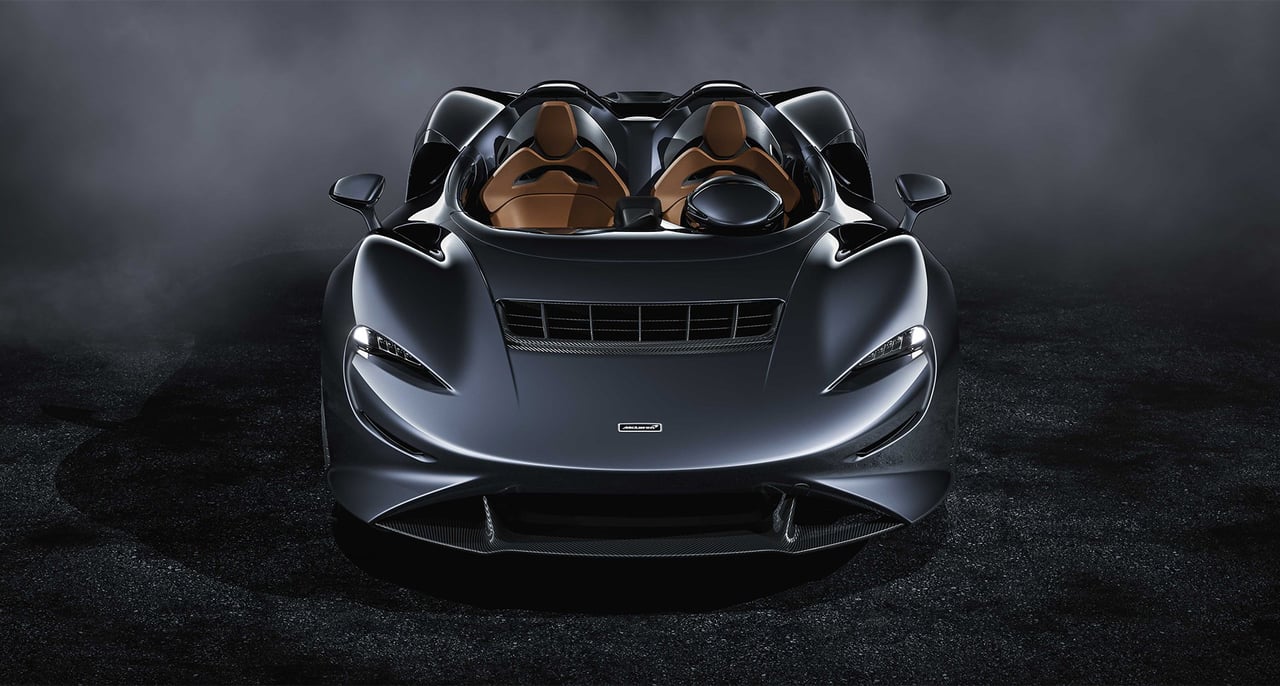
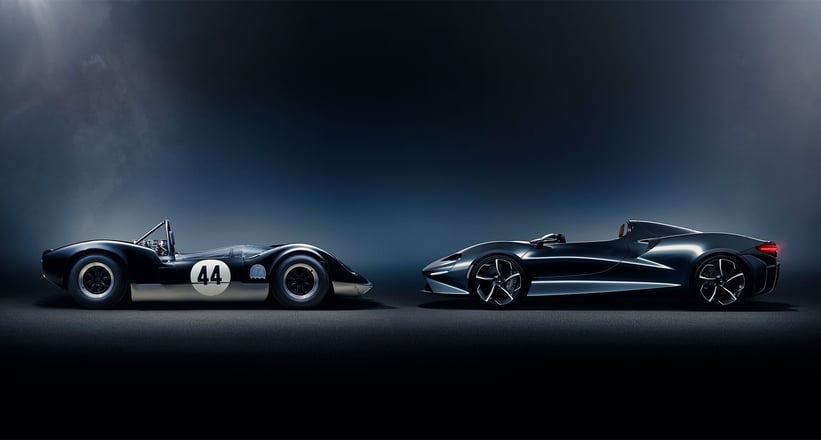
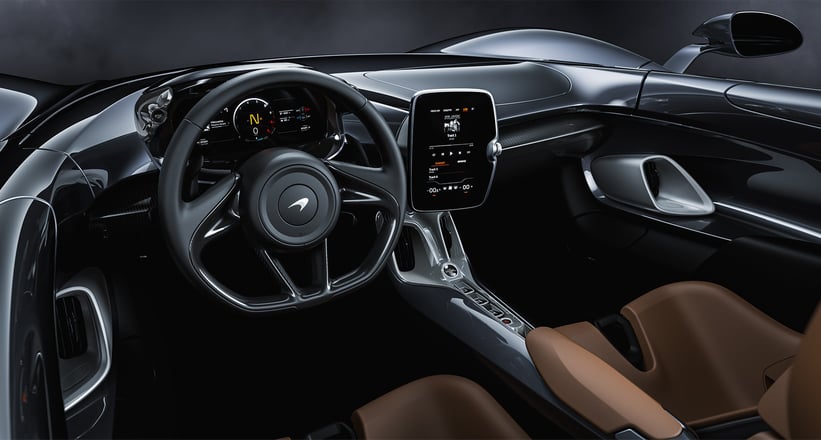
A roadster in the purest sense, much like Ferrari’s SP1 and SP2 Monzas, the Elva’s intricately sculpted and aerodynamically advanced carbon-fibre bodyworks appears to merge seamlessly into the open-air cabin. But thanks to an innovative active wind deflector in the bonnet, the occupants of the cabin will not be battered and blown by fierce winds – instead, carbon-fibre vanes will deploy at speed to manipulate the airflow and form what McLaren has billed as a ‘bubble of calm’ over the cockpit.
We can only begin to imagine how ferociously fast the Elva will be and how the sensory experience will be heightened by its lack of bodywork. McLaren will build just 399 examples, priced at a princely £1.425m (incl. taxes) each. Is the Elva as pretty as the Ferrari Monza? Probably not. Will it be even more exciting to drive? We have absolutely no doubt.
Photos: McLaren Automotive










